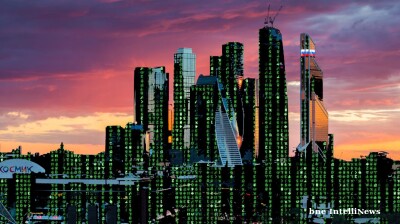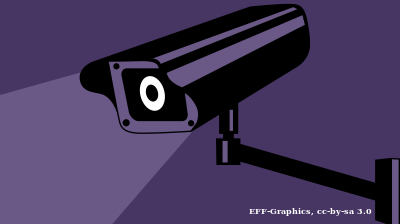Fashion e-commerce retailer Wildberries was Russia’s biggest e-commerce online store in 2018 according to a new ranking by revenues from Data Insight, reports East-West Digital News (EWDN).
Data Insight is a specialized research agency and released its ranking of Russian e-commerce sites in 2018 at the end of April.
Sites are ranked by sales volume (incl. VAT), number of orders and average order value as estimated by the research agency and, in certain cases, confirmed by the companies. The ranking excludes marketplaces, which explains why Aliexpress, the Alibaba subsidiary that dominates cross-border flows in Russia, is not mentioned.
Fashion site Wildberries.ru maintained its leadership (since 2016) with sales revenues nearing $1.8bn in 2018, up 74% from the previous year. The site is also the global leader by traffic – ahead of ASOS, H&M, Zara, Next, Uniqlo and alike, according to SimilarWeb. Forbes Russia recently estimated Wilderries’ value at $1.2bn, making it the fourth most valuable Internet company in Russia after Yandex, Mail.ru Group, and Avito.
Wildberries also recently made it into the top three most valuable internet unicorns ranking from Forbes with an estimated value of $1.2bn.
Unsurprisingly, NASDAQ-listed Yandex and LSE-listed Mail.Ru Group lead the ranking, with capitalizations of $10.7bn and $5.6bn, respectively. But Forbes has identified two other unicorns: Avito, the classifieds giant over, which Naspers just took full control at a $3.85bn valuation, and Wildberries, the rising star of Russian e-commerce, which Forbes values at $1.2bn.
Wildberries’ owner Tatyana Bakalchuk was also named Russia’s second ever female billionaire, as reported by bne IntelliNews.
Three sites selling electronic appliances are ranked second, third and fifth – respectively, pure player Citilink.ru,multichannel retailer MVideo.ru and pure player DNS-Shop.ru.
Recording an impressive growth (+73%), general Internet store Ozon improved its rank from seventh place in 2016 and 2017 to fourth place in 2018.
Ozon recently raised a RUB10bn ($155mn) convertible loan from its two largest shareholders AFK Sistema multi-industry investment conglomerate and Baring Vostok Capital Partners (BVCP) to fund the expansion of its delivery and logistics system that currently is seen as holding back the company’s growth. Sistema clearly has big plans for the company and increased its stake in Ozon in March.
Lamoda, a Western-owned and managed fashion site launched by Rocket Internet in 2011 (now part of Global Fashion Group) generated $463mn in sales revenues last year.
At 14%, Lamoda’s year-on-year growth is not as impressive as that of Wildberries or Ozon, but Lamoda does much better than two other Western fashion sites, Bonprix.ru (-6%, 14th place) and Witt.ru (-35%, 21st place). These are properties of Otto Group, which used to be among the leading e-commerce groups in Russia but has partially left the market. In early 2018, the German group shut down two other sites, Otto.ru and Quelle.ru.
Another loser in the 2018 ranking is KupiVip, the leading flash sales platform backed by Western investors. The site was in the top 10 just a few years ago; it now ranks 25th, with just $107mn in estimated sales revenues, down 13% from 2017.
Even more dramatic is the fall of Ulmart.ru, due essentially to shareholder disputes. With an initially successful hybrid online-offline model, the company topped the e-commerce market in 2015; last year the company ranked 17th in sales revenues at $158mn, down 57% in one year.
On their side, Western retailers Ikea and Leroy Merlin made a noteworthy performance last year. According to Data Insight’s analysts, the Swedish DIY giant generated almost $150mn in online sales revenues (up 366% from 2017), while its French competitor made around $71mn (up 71%).
Amazon is absent from this ranking. The US giant’s sales to Russian consumers are modest, based only on a cross-border offer.
Russian e-commerce is entering a promising development cycle where domestic sales are starting to play a more important role than the traditional cross-border trade: although the size of the market reached just $18bn last year (taking into account only physical goods), its growth is accelerating, as witnessed by the performance of many players listed in Data Insight’s ranking.
In October last year Morgan Stanley predicted that the market could exceed $50bn by 2023. But Boris Ovchinnikov, the Data Insight analyst who conducted the ranking, believes online retailers could do even better.
“Over the past year or two, the performance of many players, including both large and medium-sized sites, has been so impressive that forecasts may have to be revised upwards,” he told East-West Digital News.
Growth will be pushed by massive investments made by big players. Sberbank, the state-controlled financial giant, has put half a billion dollars in an e-commerce joint venture with Yandex, while Mail.Ru Group has teamed up with Alibaba to develop an “ecosystem” that would encompass e-commerce, social communications and gaming. (Yandex and Mail.Ru Group are listed on Western stock exchanges LSE and NASDAQ, respectively.)
Meanwhile, Ozon is investing massively in infrastructure. Its fulfilment capacity, currently at 100,000 sq. m., will “at least double in 2019 and could even reach or exceed 1mn sq. m. in 2025,” the company’s PR director Maria Zaikina told EWDN.
Tech

Russia blocking messaging apps again, sets up copycat Telegram app
Russia’s internet watchdog Roskomnadzor has been blamed for another round of internet outages in Russia, as the state sets up a Telegram messaging app clone as the Kremlin continues to take increasing control of RuNet.

Albania’s AI minister ‘pregnant’ with 83 children, PM says
AI “minister” Diella will give birth to dozens of digital parliamentary assistants for ruling party MPs.

Is Kazakhstan building a digital utopia, or a China-style surveillance state?
Many Kazakhs will tell you that officials should limit their ambitions to fixing the internet speed. Others worry that the time for joking is over.

Kia inaugurates $310mn "highly automated" automotive plant in Kazakhstan
Featuring 68 industrial robots, the plant is designed to produce up to 70,000 vehicles annually.





